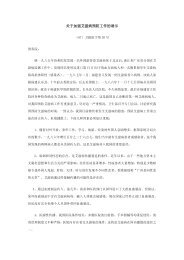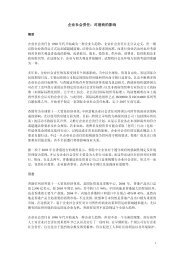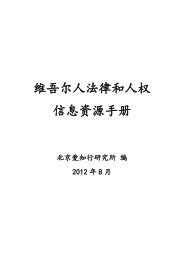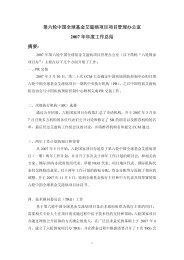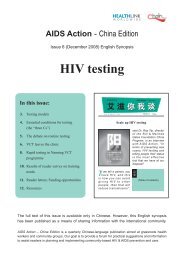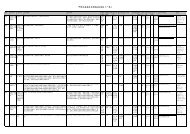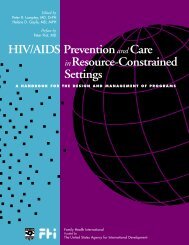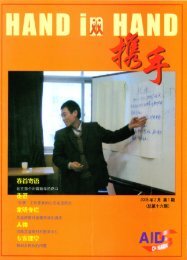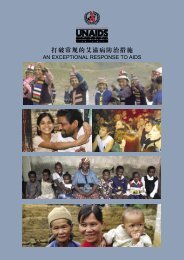The Training of Trainers Manual - UNFPA
The Training of Trainers Manual - UNFPA
The Training of Trainers Manual - UNFPA
You also want an ePaper? Increase the reach of your titles
YUMPU automatically turns print PDFs into web optimized ePapers that Google loves.
Exercise: <strong>The</strong>ory – practise it<br />
30<br />
minutes<br />
Objective<br />
Materials<br />
To help participants understand the practical application <strong>of</strong><br />
theoretical and other methodological approaches to behaviour<br />
change<br />
Markers, tape, flip chart paper, and Handout 2. Peer Education and<br />
Behaviour Change <strong>The</strong>ories<br />
Process<br />
Distribute the handout and give a brief presentation on the theories and models for<br />
behaviour change. Instruct participants to separate into three groups, each with flip<br />
chart paper and markers.<br />
Ask participants to choose a programme in which one <strong>of</strong> their group members is<br />
involved and analyse all aspects <strong>of</strong> it. <strong>The</strong>n ask them to outline the programme on<br />
the paper and to identify the theories and models (or parts <strong>of</strong> theories and models)<br />
that are being used in it. Emphasize that multiple theories and models may be used<br />
in the same programme and that only some aspects <strong>of</strong> theories and models may<br />
be used. Ask each group to present its discussion to all other participants.<br />
Closure<br />
Point out that without realizing it, everyone uses theories and models <strong>of</strong> behaviour<br />
change in their everyday work. Initiate a discussion on the topic <strong>of</strong> why organized<br />
theoretical and methodological approaches to behaviour change should be<br />
included in training programmes. Emphasize once again that a theory or a model<br />
does not have to be used in its entirety and that different parts <strong>of</strong> different theories<br />
and models can be used in one programme. Nevertheless, it is important that<br />
programmes be rooted in appropriate theories and models.<br />
Exercise: Information, motivation, behavioural skills, and<br />
resources<br />
20<br />
minutes<br />
Objective<br />
Materials<br />
To identify information, motivation, behavioural skills,<br />
and resources as the four primary components <strong>of</strong> successful<br />
peer education<br />
Flip chart and markers<br />
38 <strong>Training</strong> <strong>of</strong> <strong>Trainers</strong> <strong>Manual</strong>



